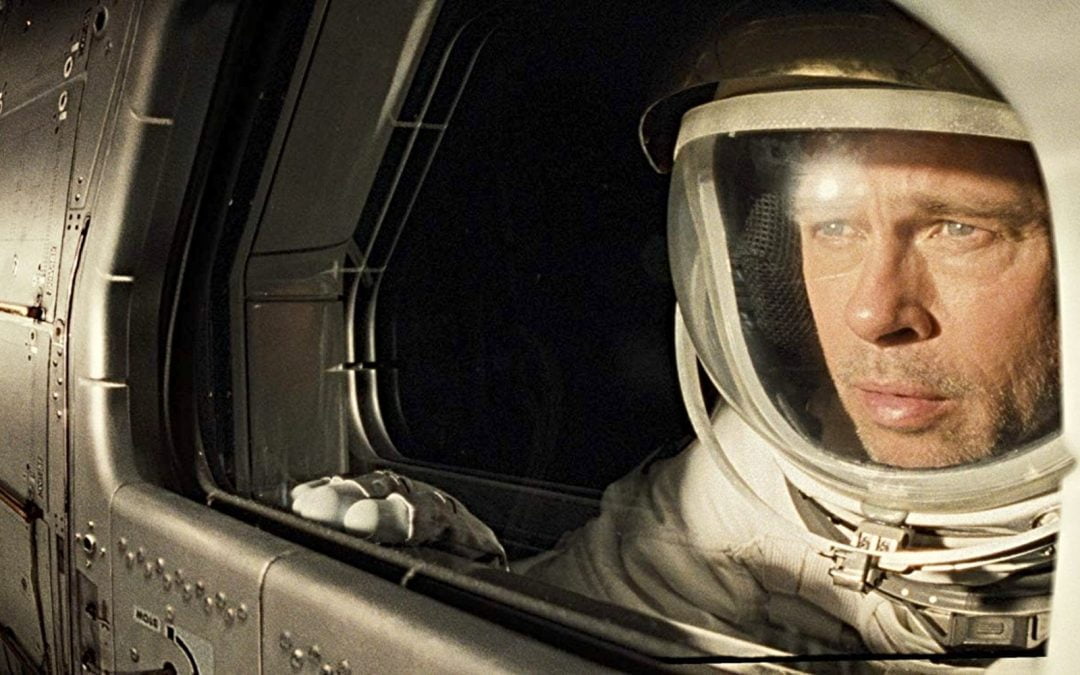“Oscar bait.” That’s the term I use for movies that show up in theaters this time of the year that have some critical buzz.
This usually translates into people thinking the movie or one of its actors probably will be nominated for an Oscar.
I check these movies out because when the Oscars are announced, I want to have an informed opinion about what I think is best.
“Ad Astra” is one of these movies. Brad Pitt, who plays astronaut Roy McBride, is being talked about for a best-actor nomination.
The movie is set in the near future, when the moon and Mars are colonized. NASA has been replaced with a space agency called the U.S. Space Command.
The plot revolves around Roy’s father, H. Clifford McBride (Tommy Lee Jones), who is the most decorated astronaut in Space Command’s history.
When Roy was 16, Clifford left on a mission to the edge of our solar system. At age 29, Roy learned his father was supposed to have perished.
In present time, there is anti-matter coming from the edge of the solar system that is playing havoc with electrical systems on Earth. The belief is that this anti-matter is coming from Clifford’s mission.
Roy is enlisted to go to an outpost on Mars to send a specific message to his father. The goal is to see if Clifford will respond.
We are taken on a journey – not just in space, but a personal one for Roy.
Roy is well known in Space Command for his ability to compartmentalize. He is never overtaken by emotion and has never had his heart rate rise above 65. In the worst of circumstances, he is able to remain calm and work the problem.
As he goes on the search for his father, we see Roy become more and more unstable. The search is having adverse effects on his psychological well-being.
Within the film’s narrative structure, we discover secrets about the mission Clifford undertook. And we see these secrets add to Roy’s unease.
Though I did not like this movie that much, there is one thing it has that I feel is important: the father-son dynamics. We cannot overstate the importance and its impact on us. This is something the movie makes clear.
We see an unhealthy father-son relationship. The father seems to be always absent. The son grows in the shadow of that absent father and, without that relationship, becomes stunted emotionally.
There is much power in this narrative trope, but the execution done through this space epic just does not seem the right vehicle.
Within the narrative, some missing pieces keep the story from being more powerful. One of those is character development. That is especially true of Clifford’s character.
The big question is, “Does Brad Pitt’s acting rise to the level of Oscar consideration?” I enjoyed the way he handled the movement from in total control to the place where his world seemingly fell apart. It was well done.
The bottom line for me is this story did not provide the needed elements to make one care deeply for all involved.
There were wonderful CGI effects of space travel. Even a shootout on the moon is included. But all that fancy artistry cannot cover up the reality that the movie is lacking.
MPAA Rating: PG-13 for some violence and bloody images, and for brief strong language.
Director: James Gray
Writers: James Gray and Ethan Gross
Cast: Brad Pitt (Roy McBride), Tommy Lee Jones (H. Clifford McBride), Ruth Negga (Helen Lantos), Donald Sutherland (Thomas Pruitt).
The movie’s website is here.


